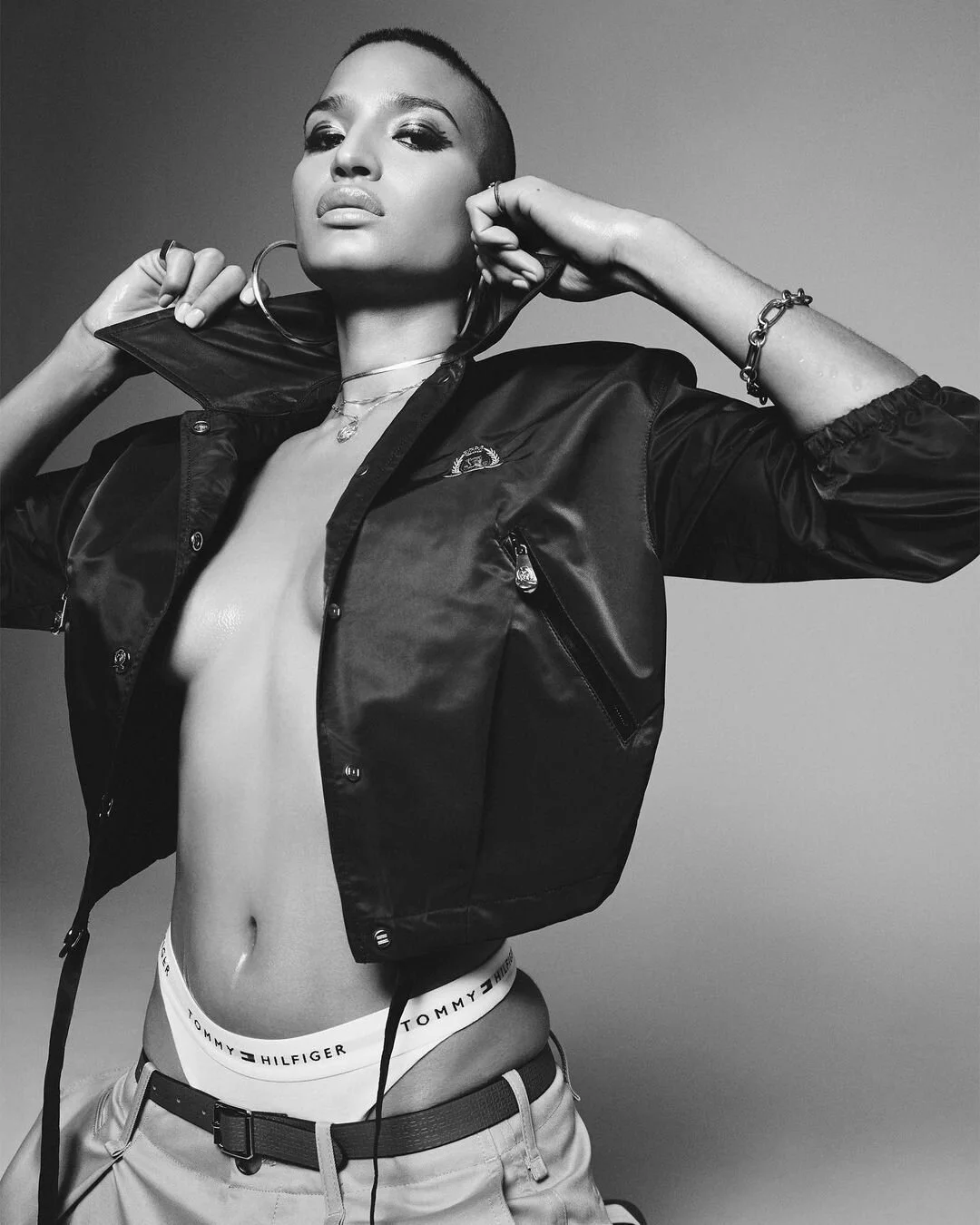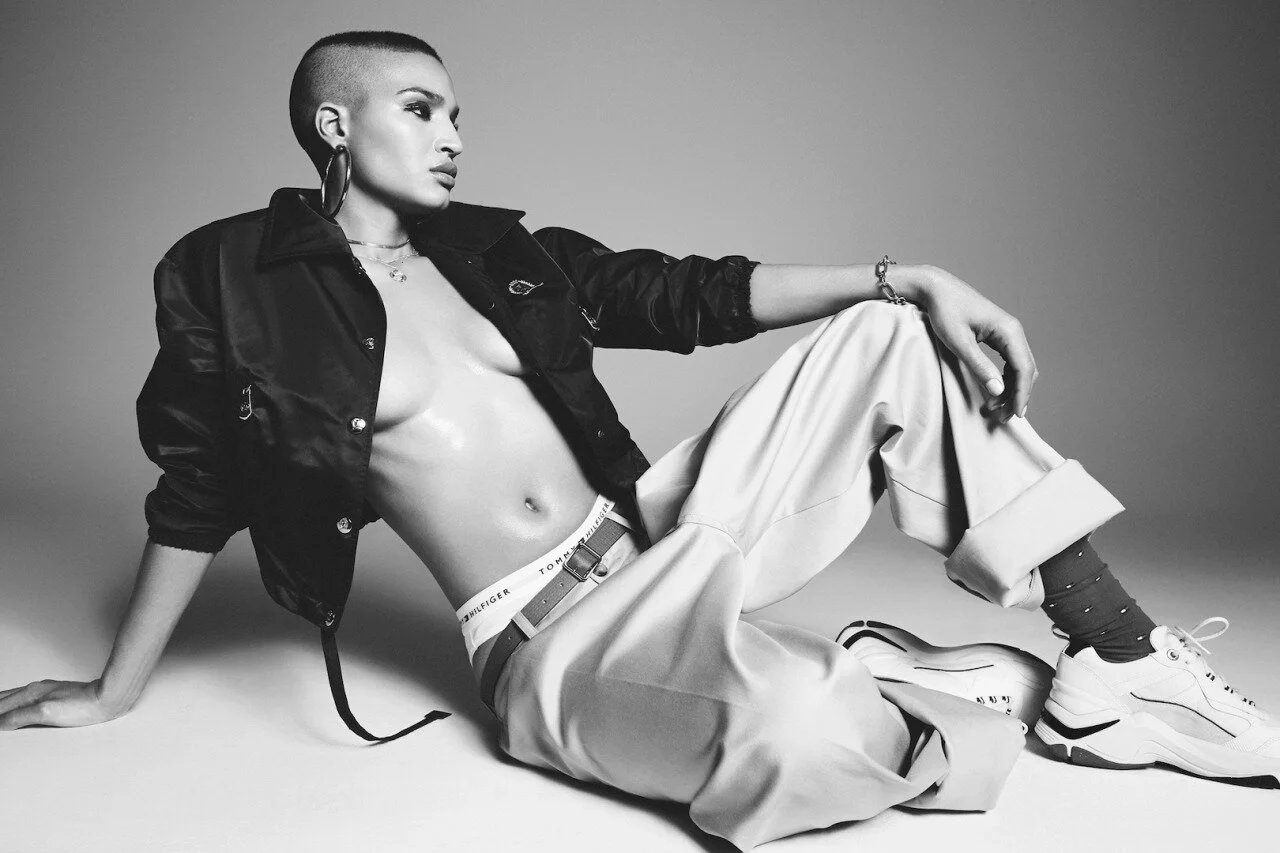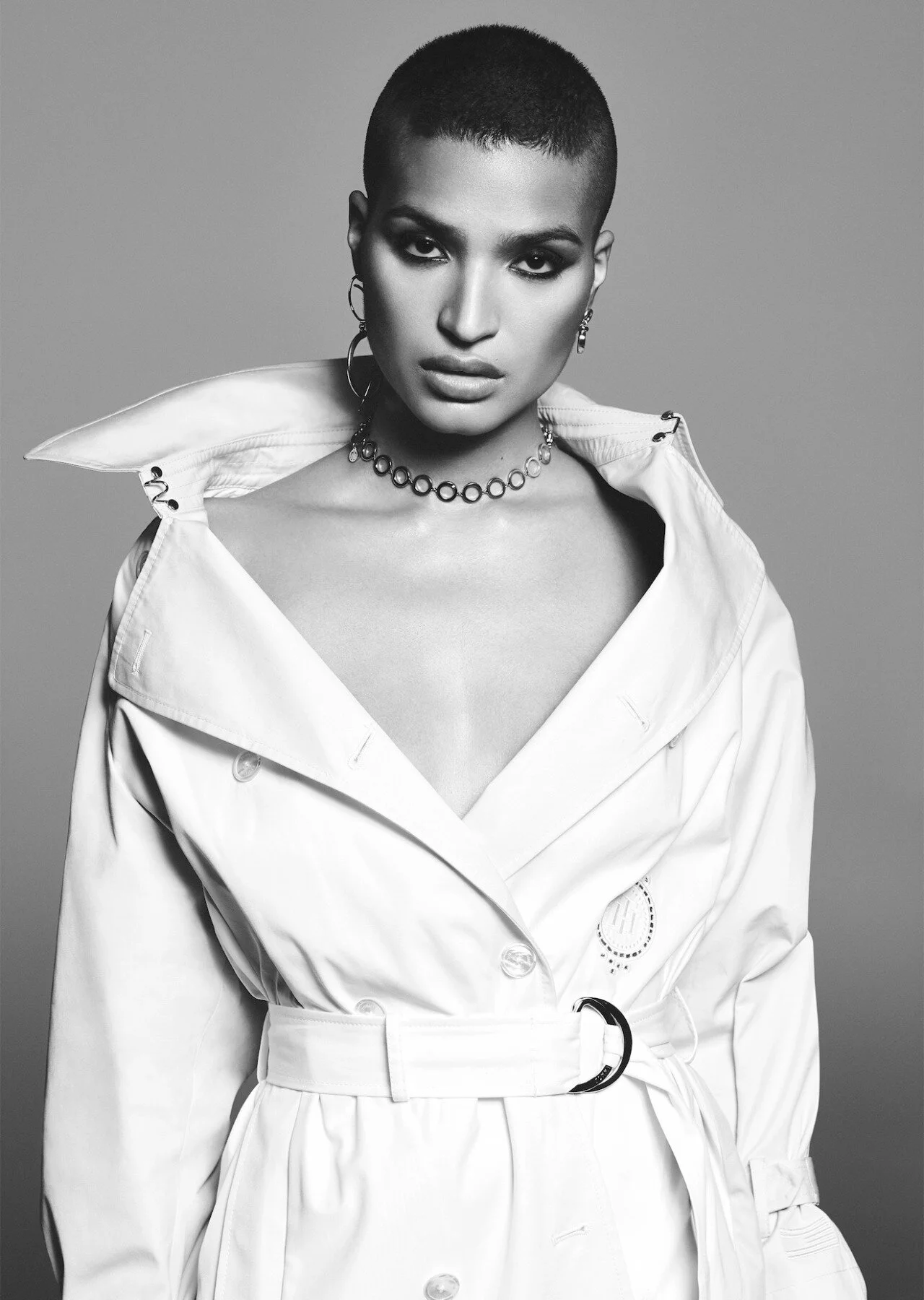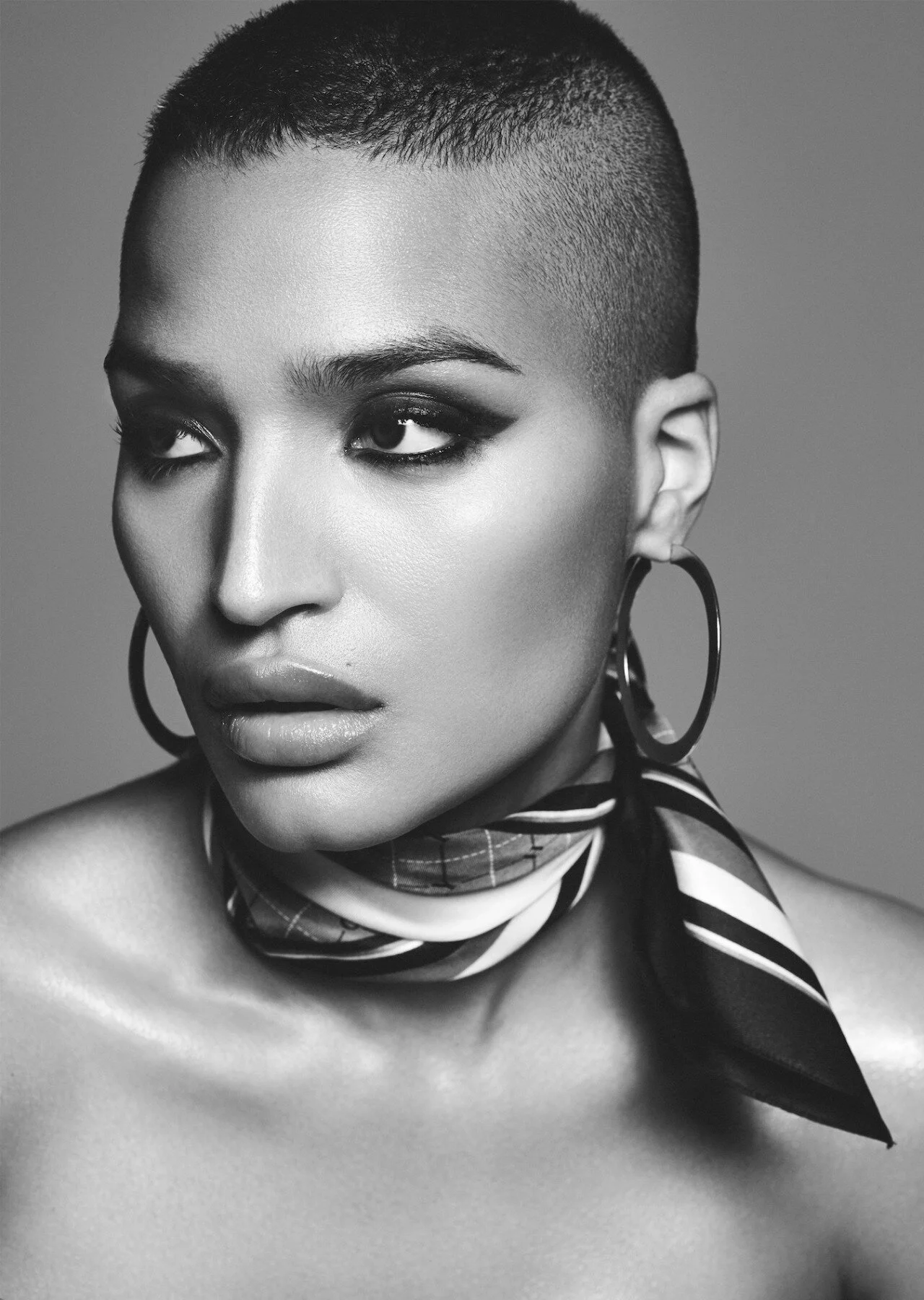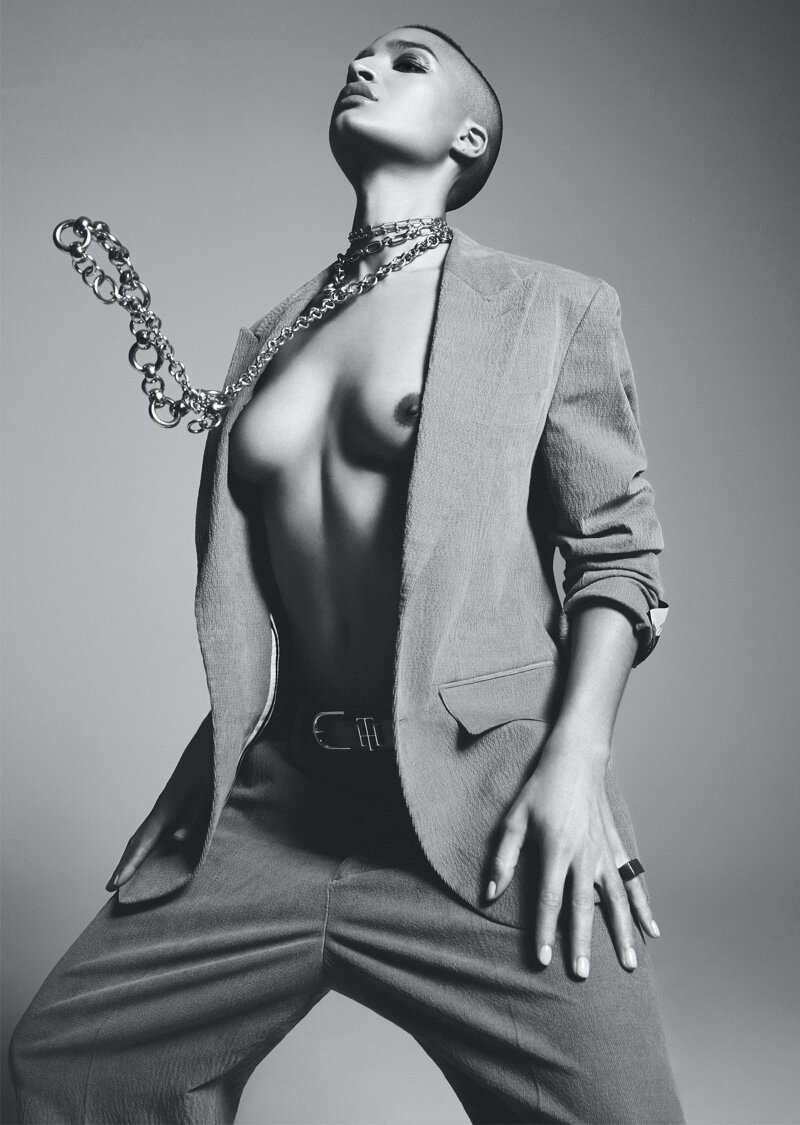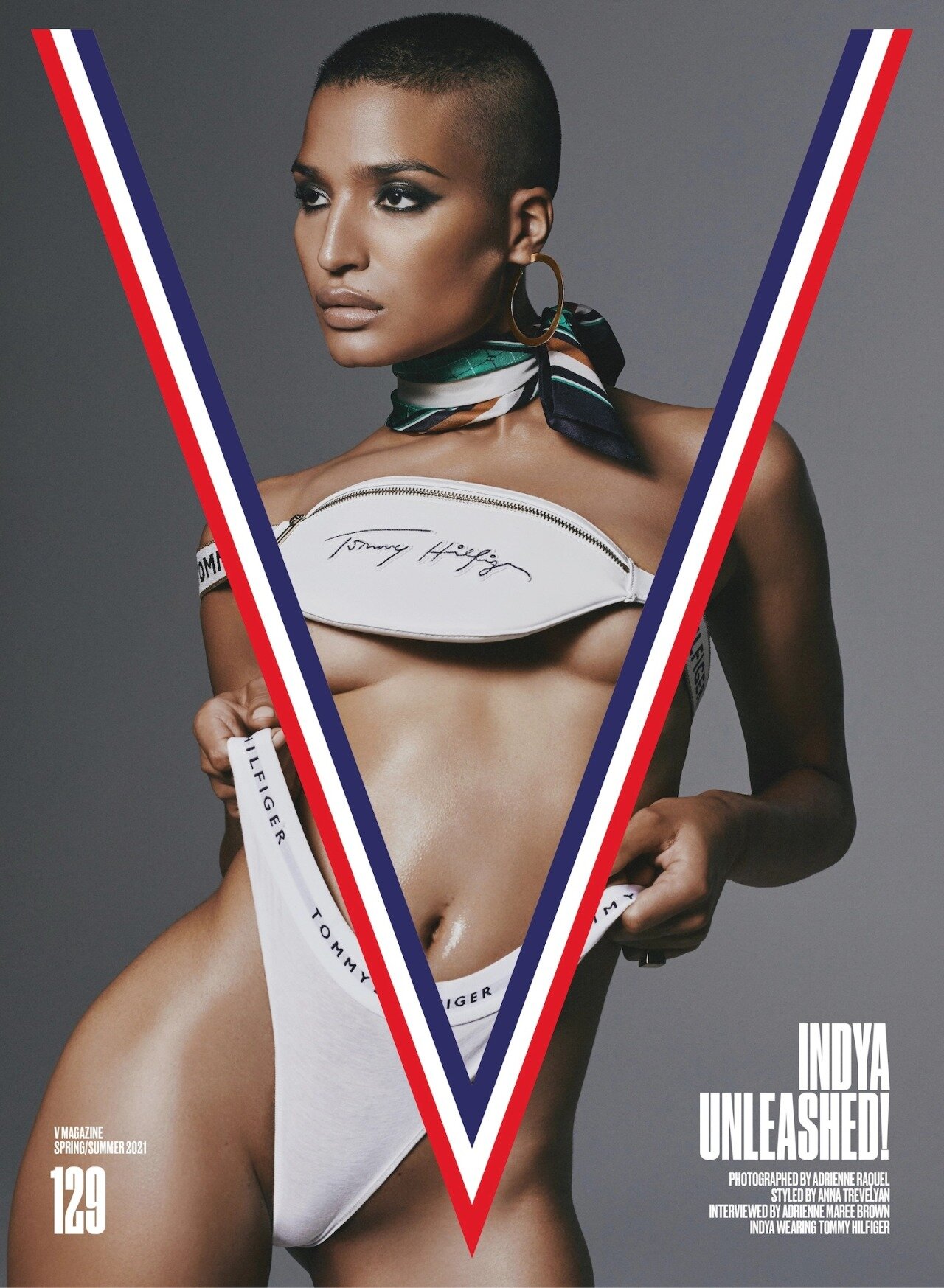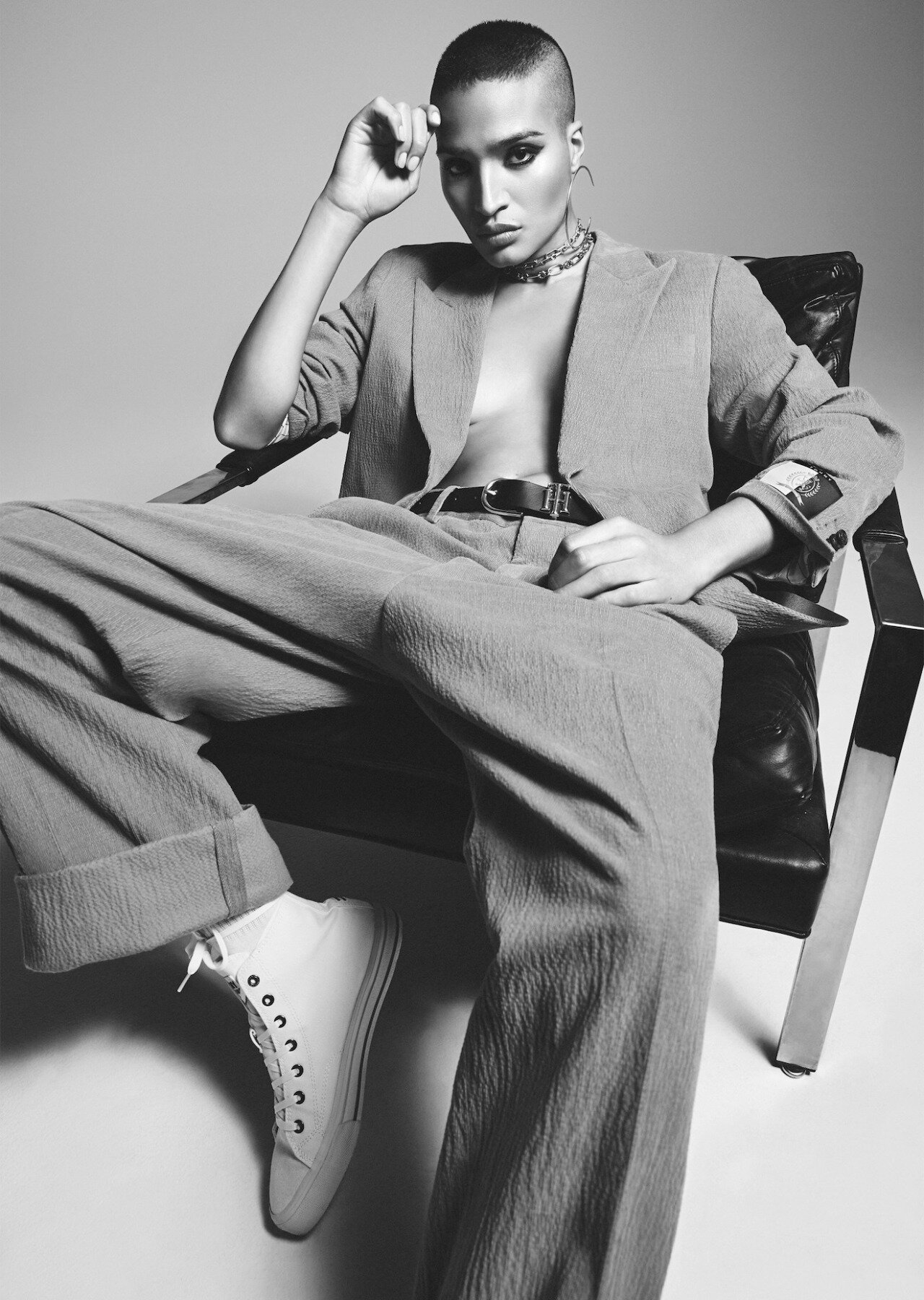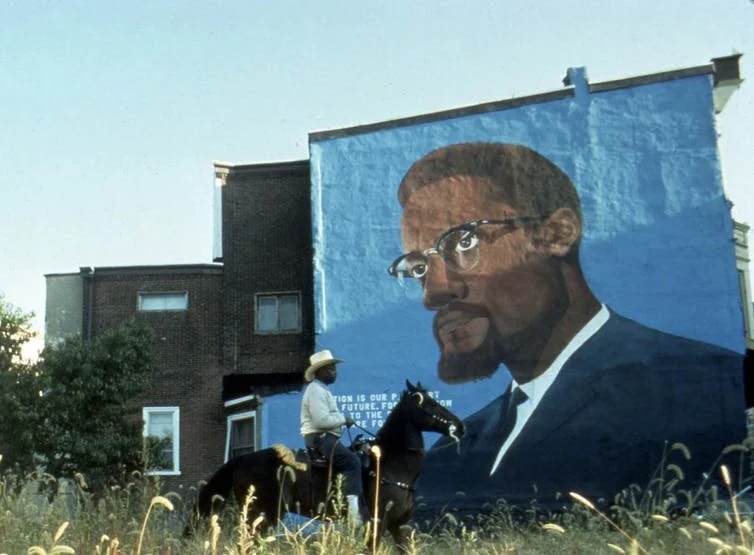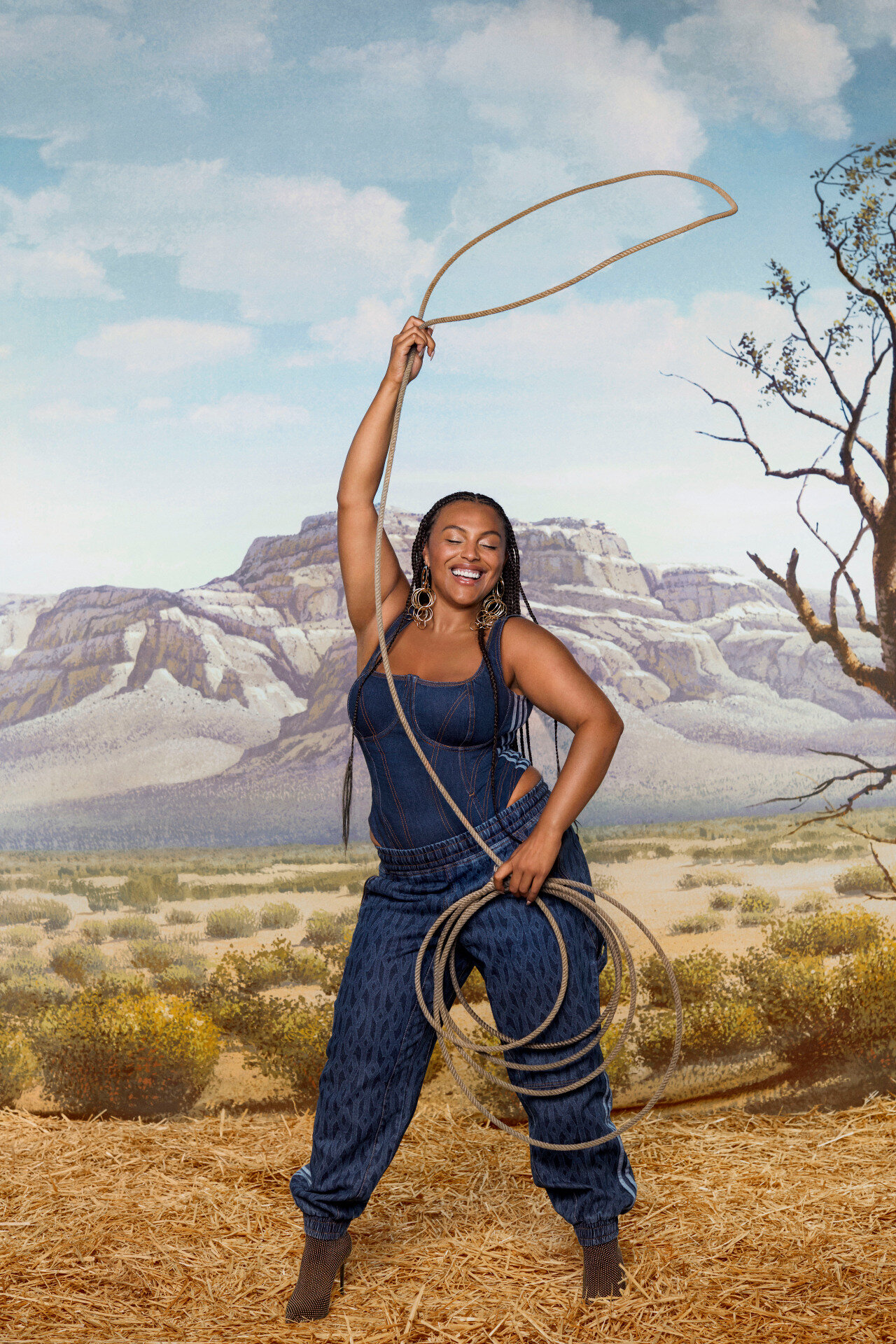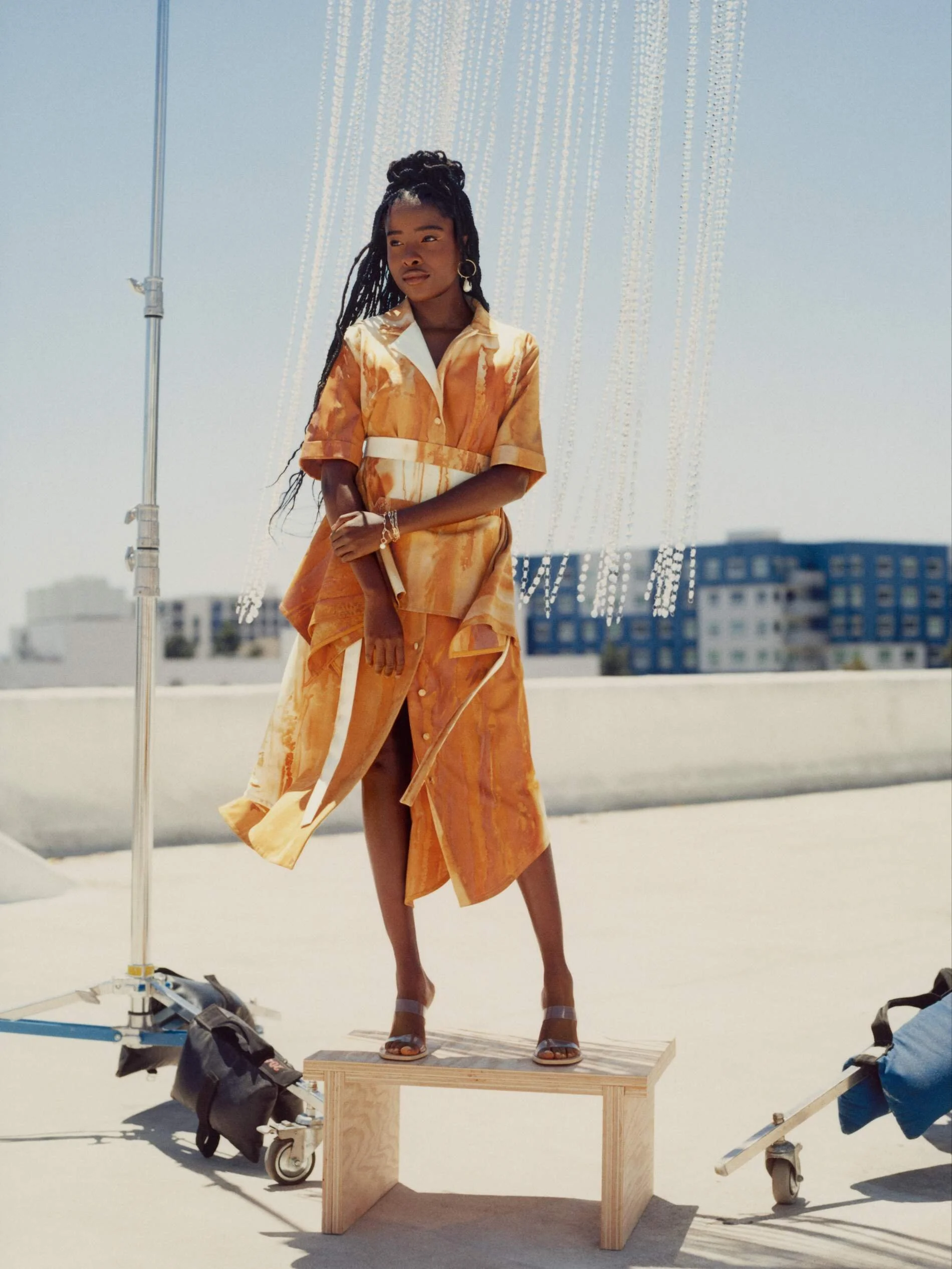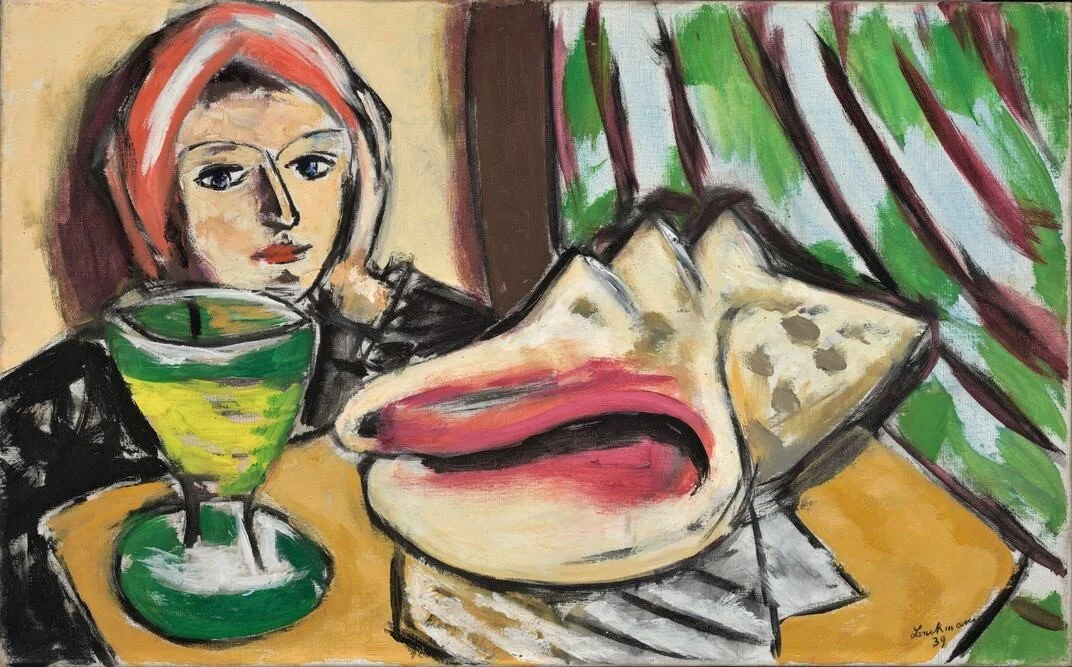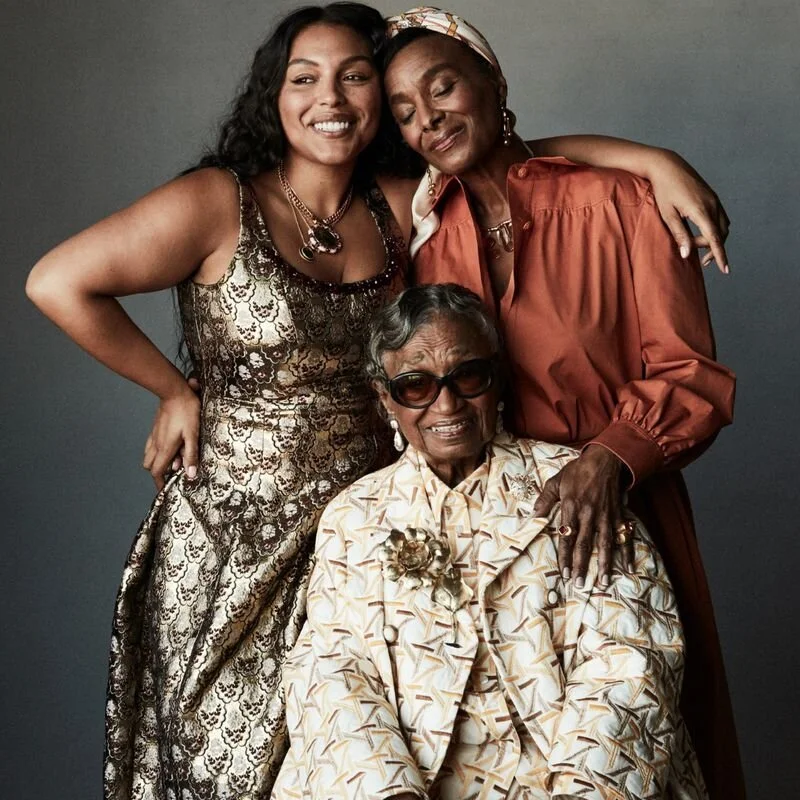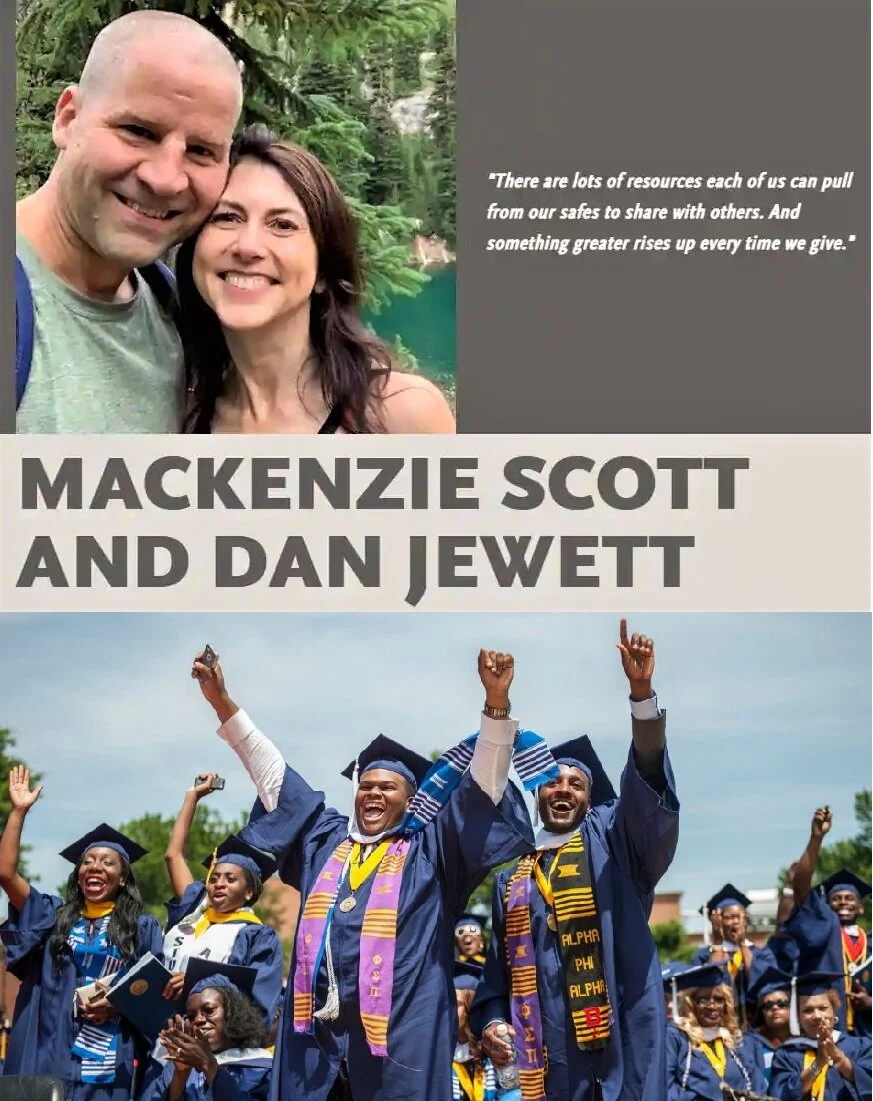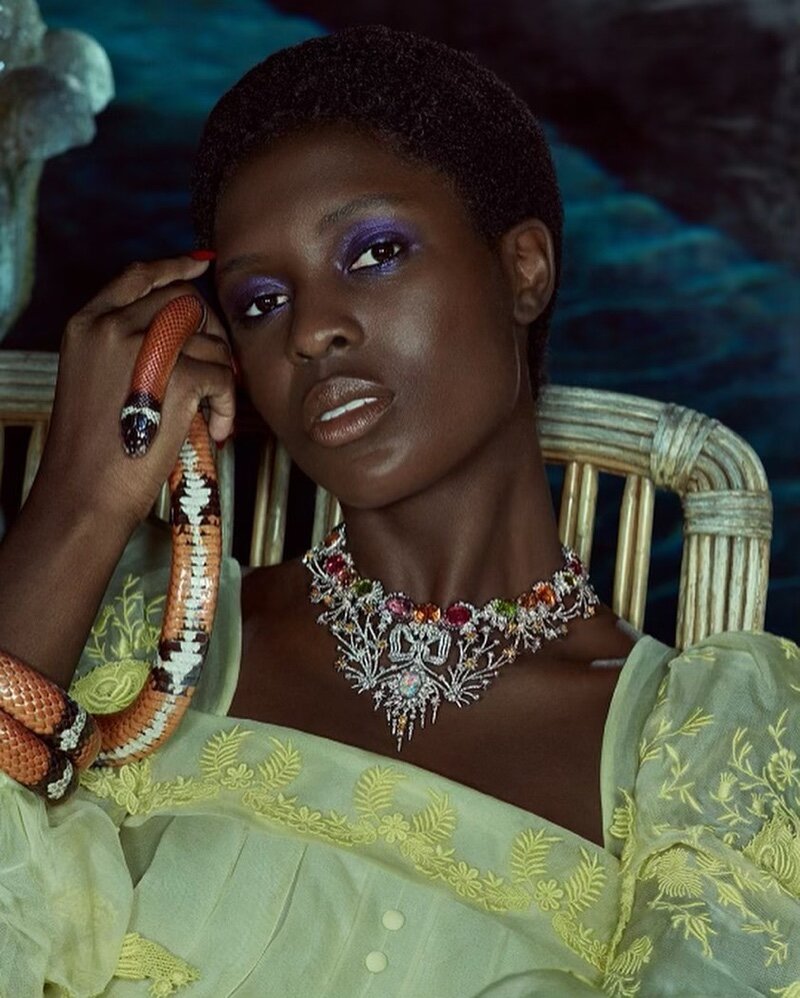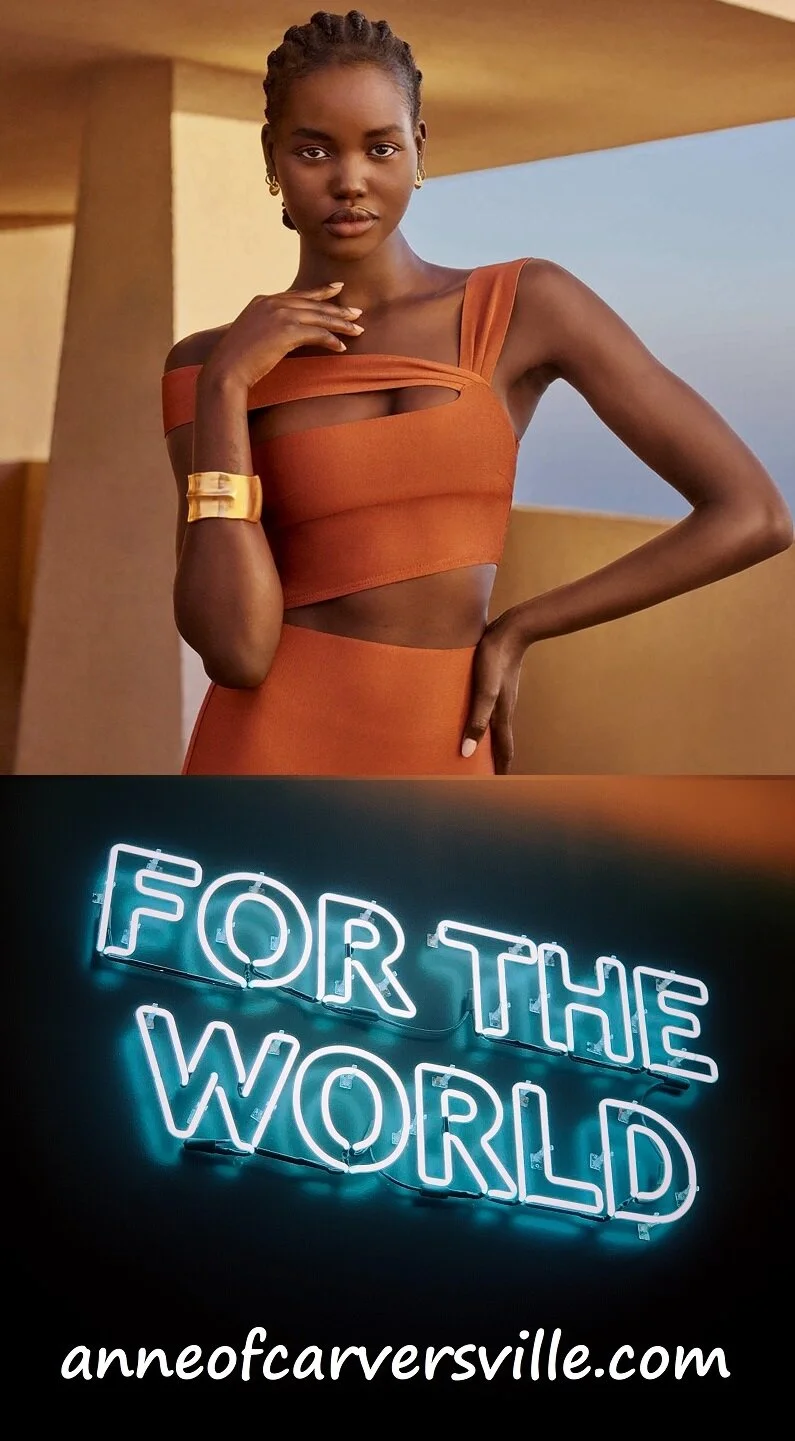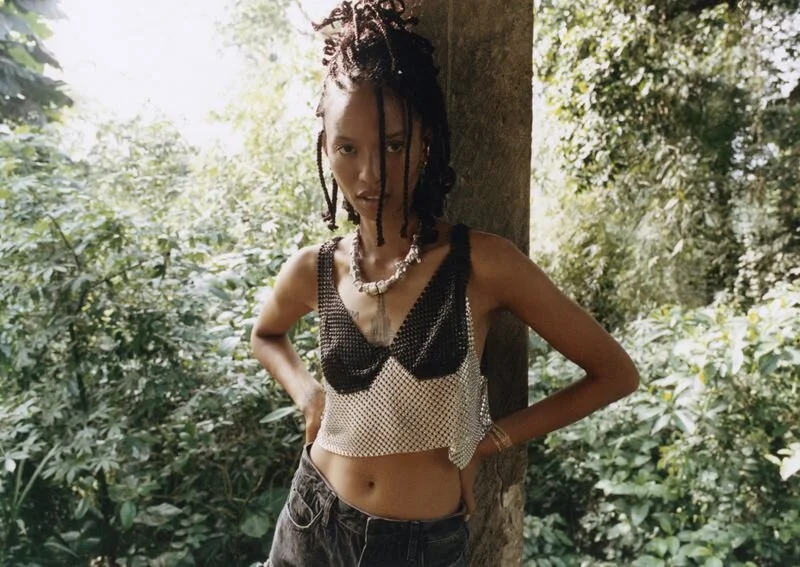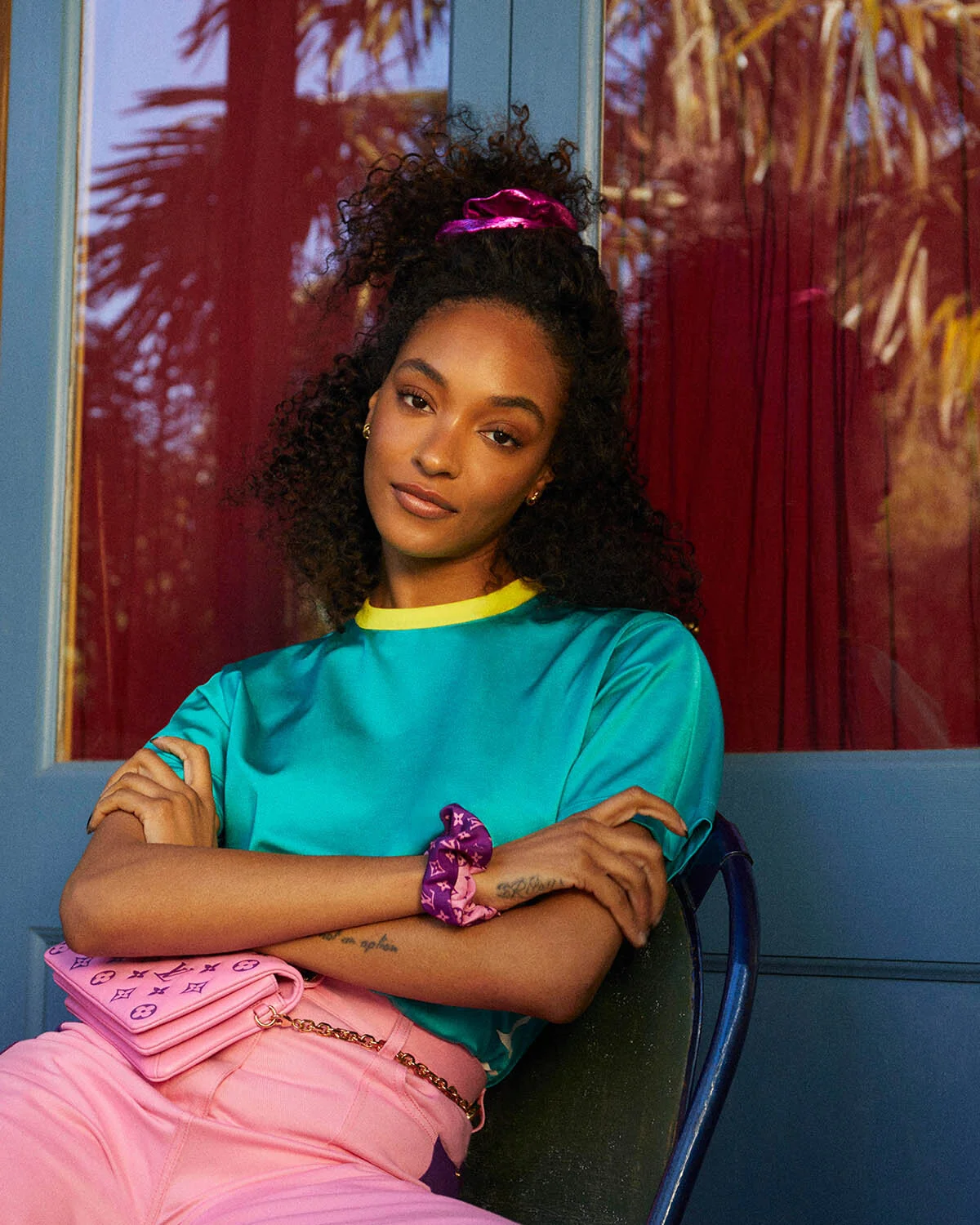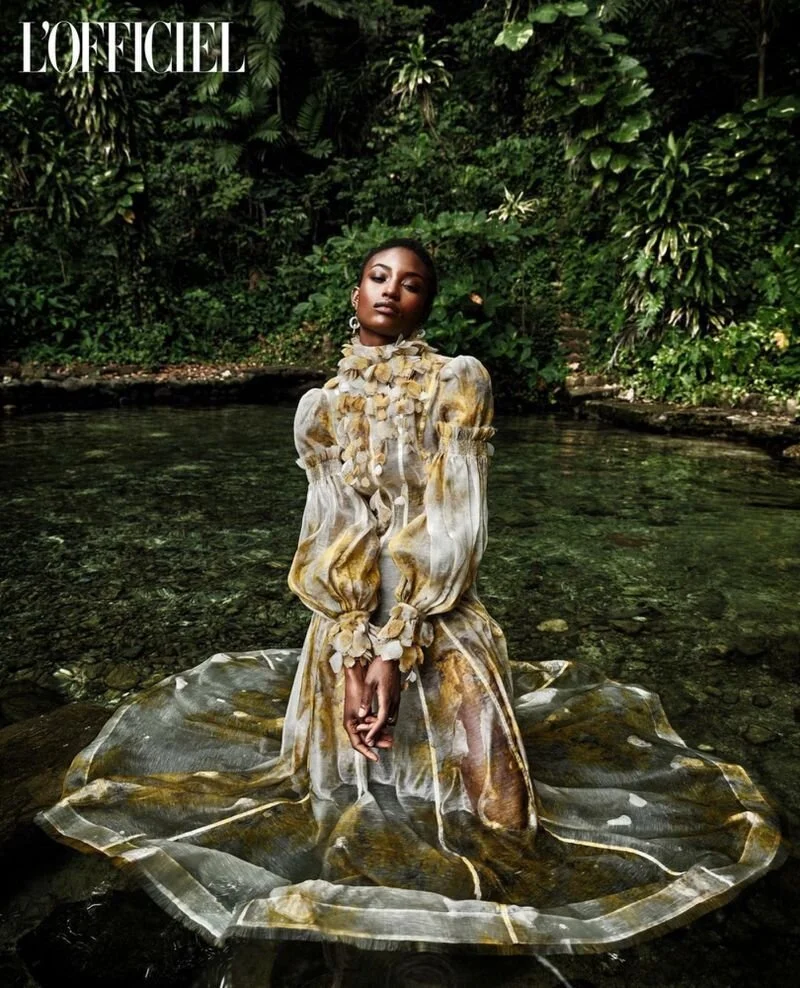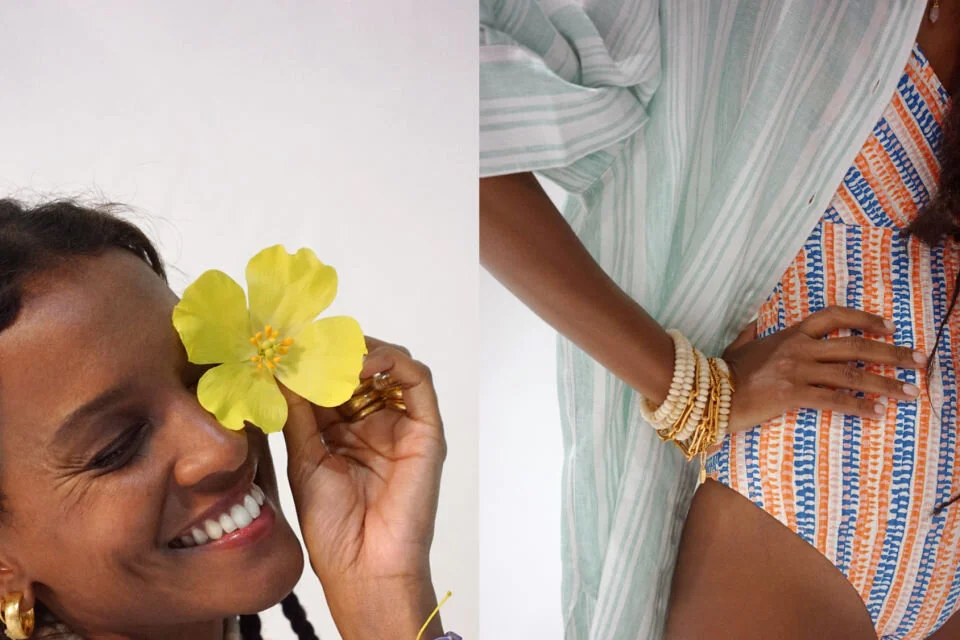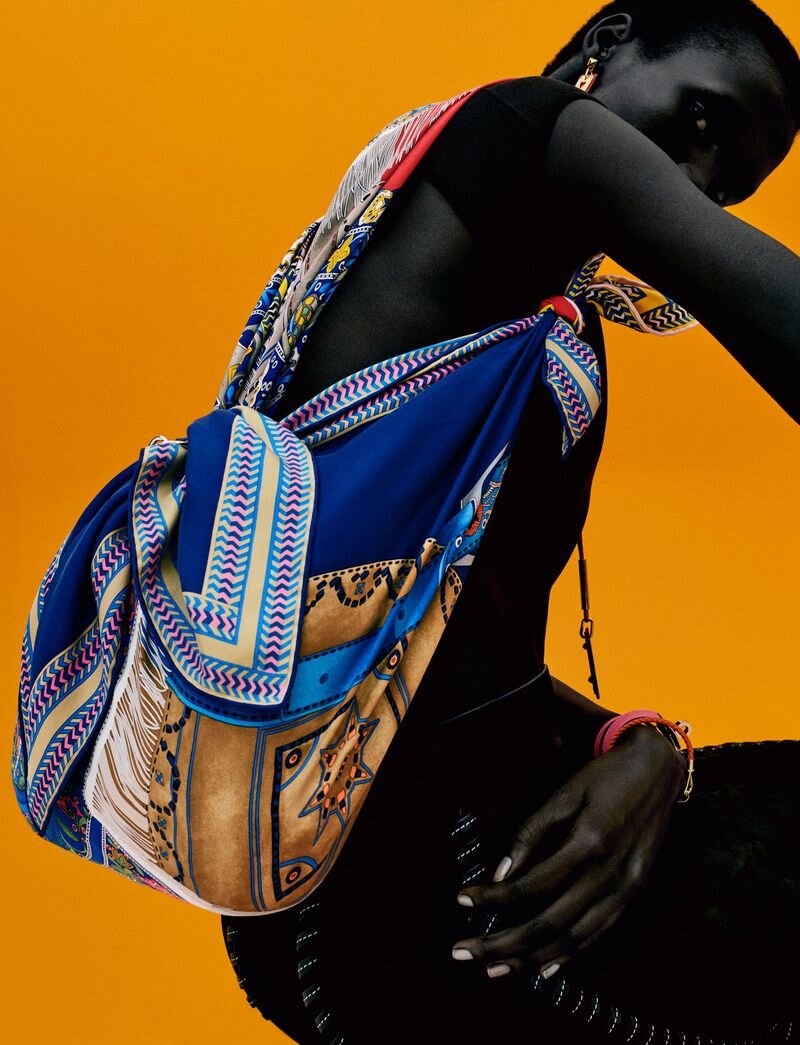Indya Moore Lensed by Adrienne Raquel Talks Tommy Hilfiger and God in V Magazine #129
/‘Pose’ star Indya Moore bring her increasingly mega-watt presence to the pages of V Magazine #129 Spring-Summer issue. Anna Trevelyan styles the trans beauty in genderless outfits from Tommy Hilfiger. Moore talks about her relationship with Hilfiger in the pages of V129 lensed by photographer Adrienne Raquel. [IG] / Hair by Hos Hounkpatin; makeup by Renee Garnes
Indya Moore is interviewed by author Adrienne Maree Brown, and you should read every word. Most of us know the general outline of the actor’s life and activism, but Brown and Moore get deeply philosophical. For her part AMB is an excellent interviewer voice moving beyond boilerplate questions and stock answers. When these two brainiacs start talking God and divinity, AOC sits up and pays attention.
Indya Moore about the triggers of her activism:
“I think just my experience in the world. It was very easy for me to say, I don’t want people to go through this. I don’t want the cycle to continue, I want to move forward. I think every queer person goes through a time in their life where they’re at a crossroads of understanding queerness through a ‘right’ and ‘wrong’ kind of binary. It’s like “alright, is who I am wrong, or not? What is this? Because I’m getting so many messages.” It’s all very confusing. I know how I feel, but the world seems to continue to create messages that it’s wrong for me to exist in the way that I do and feel the way that I do. I think when I came to my crossroads, I realized how stupid it was that we live in a world that just so heavily criminalizes queerness. For me, in my experience, it was spiritual. I was raised very Christian, my mom was a Jehovah’s Witness and my dad inherited Catholicism. . . .
It was just really interesting to see myself process my own principles around myself and my own ethical grounding around myself, and realizing how stupid it is that spiritual bias exists. That’s how it came to me. It was just like, wow, how can we simultaneously create these teachings about God being such a loving person, but there seems to be character traits of who is spiritually eligible to access God. So I realized how stupid that was, and I just knew that God would not be pleased or happy with the ways that I suffered because of what people thought they were doing in the name of God, or whatever excuse peoples used to create false harm and misery. But every way that I felt that was outside of the gendered expectations of my parents was vilified. I was disciplined frequently, abused a lot because of it. So I just came to a point where I realized, there’s something really wrong here, and I want to investigate what that is. What is the language that I can form around this issue that makes it easier to understand why it’s important for us to change this culture?”
Moore skims over core experiences in her youth like being taught to expect doom as a child. Worse than doom, she was taught to expect her own demise. ”Just coming into life,” I was expecting death. I know the religious backdrop of Indya Moore’s earliest years from her other interviews. . . there was so much concentration on who I couldn’t be, who I was not able to be.
All roads lead back to the most important book I’ve read in life: ‘America’s Four Gods: What We Say About God—And What That Says About Us’.
Believers in an Authoritative God in particular see one’s every move being watched by God. Hence, all actions are focused on not getting in trouble with God. Note that God #1 is embraced largely by white males, but those women Trump voters who see him as being sent by God are also in this believers camp.
There’s no doubt that families of color can be very strict in their religious beliefs. But their belief in a Critical God’s judgment in the afterlife is tied to an inability to comprehend a God who would allow racism and slavery to exist in such a harmful way on earth. The mental construct is that a Critical God does not intervene but is keeping a tally for final judgment. In the minds of people of color — and Black people specifically — white racists will get their due on judgment day.
It’s the Authoritative God crowd, who believe that trans people like Indya Moore are creating moral pestilence on earth. It’s why I was in police protection for a year with a lunatic tracking my every move and sending me decapitated animals and the roap he would use to hang me — all because I spoke on TV on behalf of Planned Parenthood.
To finish this religious studies God session (LOL) Adrienne Maree Brown introduces a wonderful visual metaphor of not being contained. This vision of a Benevolent God or a Distant God is much more progressive-values driven, much more likely to be embraced by females in the case of the Benevolent God.
“ . . . it’s so beautiful, what you’re [Indya Moore] saying. And it’s like, how could your own imagination of yourself be more expansive than God, or the idea of God? You’re someone who’s like, is this a container? Is this a limitation? I will break that, I will burst that, and go further and further
When my friends and I took the test online in 2010-2012, God #4 the Distant God was almost all educated males, with only 2% of the total believers being women. There’s an updated version of the book from 2015, and I must see if more women now embrace the Distant God. Indya Moore’s vision is most likely in the Distant God category, but religious progressive values-drive women tend to worship God #2. Note that they call God “he” — even college-educated women. In God #4, there is no gender — which is clearly where our younger people are heading.
V Magazine impresses me a lot lately. Their work in support of voting and other forms of activism goes far beyond lip service. One of my greatest frustrations with US media is its refusal to tackle the God topic. Granted, perhaps devoting significant space to it was part of their original editorial intention. But they didn’t edit it away either.
Read the entire Indya Moore interview by Adrienne Maree Brown. Good job, V. ~ Anne
